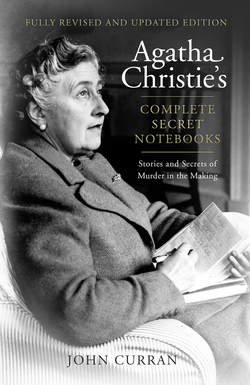Читать книгу Agatha Christie’s Complete Secret Notebooks - Агата Кристи, Agatha Christie, Detection Club The - Страница 16
Readability
ОглавлениеAs early as this first novel one of Christie’s great gifts, her readability, was in evidence. At its most basic, this is the ability to make readers continue from the top to the bottom of the page and then turn that page; and then make them do that 200 times in the course of any, and in her case, every, book. This facility deserted her only in the very closing chapter of her writing career, Postern of Fate being the most challenging example. This gift was, with Christie, innate; and it is doubtful whether it can be learned anyway. Thirty years after The Mysterious Affair at Styles the reader at Collins, reporting on They Came to Baghdad, wrote in an otherwise damning report: ‘It is eminently readable and passes the acid test of holding the interest throughout.’
Christie’s prose, while by no means distinguished, flows easily, the characters are believable and differentiated, and much of each book is told in dialogue. There are no long-winded scenes of question-and-answer, no detailed scientific explanations, no wordy descriptions of people or places. But there is sufficient of each to fix the scene and its protagonists clearly in the mind. Every chapter, indeed almost every scene, pushes the story on towards a carefully prepared solution and climax. And Poirot does not alienate the reader with either the irritating facetiousness of Sayers’ Lord Peter Wimsey, the pedantic arrogance of Van Dine’s Philo Vance or the emotional entanglements of Bentley’s Philip Trent.
A comparison with almost any other contemporaneous crime title shows what a chasm existed between Christie and other writers, most of them now long out of print. As illustration, the appearance of two other detective-story writers also coincided with the publication of The Mysterious Affair at Styles. Freeman Wills Crofts, a Dubliner, published The Cask in 1920 and H.C. Bailey published Call Mr Fortune the previous year. Crofts’ detective, Inspector French, showed painstaking attention in following every lead, and specialised in the unbreakable alibi. However, this very meticulousness militated against an exciting reading experience. H.C. Bailey began his career as a writer of historical fiction but turned to crime fiction, much of it featuring his detective, Reginald Fortune. The two writers, although skilled plot technicians in both novel and short story form, lacked the vital ingredient of readability.
